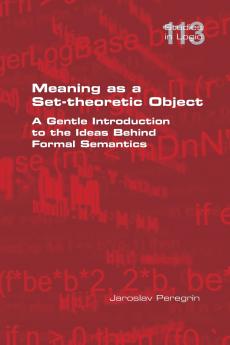English
Paperback
₹2170
(All inclusive*)
Delivery Options
Please enter pincode to check delivery time.
*COD & Shipping Charges may apply on certain items.
Review final details at checkout.
Looking to place a bulk order? SUBMIT DETAILS
About The Book
Description
Author
<p>Any comprehensive account of natural language must involve an answer to the question: <em>What is meaning?</em> And <em>prima facie</em> the answer may seem to be not too difficult: meaning is a thing that gets expressed by an expression. Troubles begin when we go on asking what kind of thing it is. And there may also be a question whether it is a thing at all. </p><p></p><p>Fifty years ago a radical attempt to answer such questions was made by the founding fathers of what has since become known as formal (or model-theoretical) semantics (Montague D. Lewis Cresswell ...). As for the kind of thing meaning is they basically followed Frege in placing them in the third realm different from the realm of physical spatio-temporal things and also from the realm of mental content. They however made use of the fact that since Frege's the realm has been thoroughly researched and mostly colonized by set theory. Therefore formal semanticists took meaning to be a set.</p><p></p><p>This approach to semantics yielded a vast number of interesting results both concerning the logico- philosophical nature of meaning and concerning particular meanings of various natural language expressions. Yet the general contribution of formal semantics to our understanding of meaning still waits for a thorough evaluation. And this is something that Peregrin undertakes in this book. As the heyday of formal semantics is now long over he can consider it with the benefit of hindsight; and with such detachment we can see things which have not been so clearly seen before.</p><p></p>
Delivery Options
Please enter pincode to check delivery time.
*COD & Shipping Charges may apply on certain items.
Review final details at checkout.
Details
ISBN 13
9781848904910
Publication Date
-19-06-2025
Pages
-208
Weight
-303 grams
Dimensions
-156x234x11.18 mm








